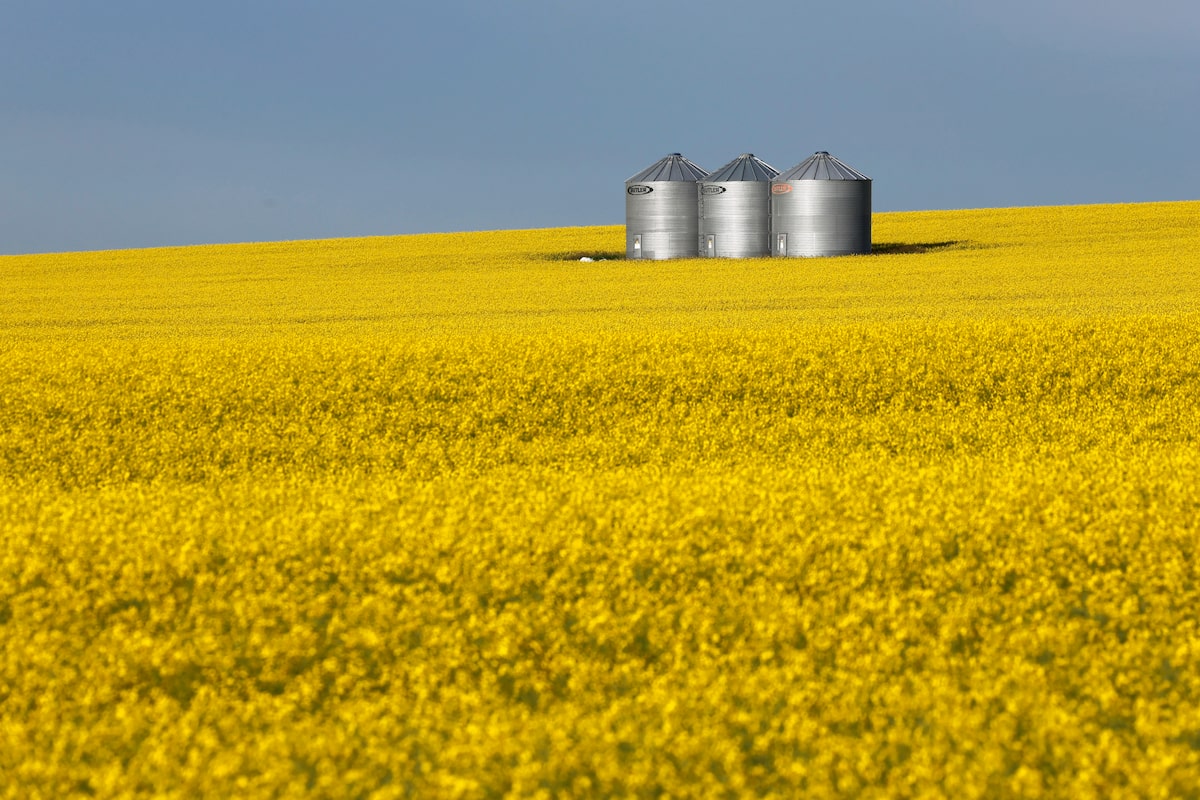The U.S. Environmental Protection Agency in June proposed slashing biofuels credits by 50 per cent for imported crops like canola, a move which would put Canada at ‘significant competitive disadvantage,’ canola industry leaders say.LARRY MACDOUGAL/The Canadian Press
Canada’s beleaguered canola industry is asking the U.S. environmental agency for an exemption from proposed policy changes that would disincentivize imports of the crop for the production of biofuels as it faces steep tariffs from China.
In June, the U.S. Environmental Protection Agency put forward new standards for allocating credits to fuel producers who are incentivized by federal regulations to blend their product with biofuels made from crops such as canola, corn or soybeans. The changes would slash the credit value of fuel made using imported feedstock by 50 per cent.
“It puts Canadian canola at a significant competitive disadvantage,” said Chris Vervaet, executive director at the Canadian Oilseed Processors Association, who is calling on the EPA to make an exception for Canada.
The Canadian canola industry is fighting a war with its two largest markets. Earlier this month, China – an almost $5-billion destination for canola – imposed 75.8 per cent preliminary duties on seed imports from Canada. The move followed 100-per-cent tariffs imposed on Canadian canola oil and meal in March.
Beijing’s actions are tied to Ottawa’s tariffs on Chinese-made electric vehicles, steel and aluminum. These trade barriers were levied at the behest of the U.S., or in reaction to U.S. tariffs.
The canola sector has been urging Ottawa to take action since the first duties were levied by China in the spring. However, any move to appease Beijing, such as reducing the electric-vehicle tariffs, would likely come at cost to already strained Canada-U.S. relations and could encourage the EPA to move on these changes, Mr. Vervaet said.
“It is a delicate balance for Canada, to say the least,” he said.
The EPA put forth the proposed changes as the U.S. administration faces intense pressure from its farmers over trade tensions with China. Since 2018, when U.S. President Donald Trump started the initial trade war with Beijing during his first presidential term, soybean farmers have lost sizable market share in their largest market.
Opinion: Ottawa can’t let our canola industry – a true Canadian success story – fade away
This year – as another U.S. and China trade war wages on – there are zero new crop export orders from China for the 2025/26 season and new crop sales are down 81 per cent compared to the five-year average, according to the American Soybean Association.
“U.S. soybean farmers are standing at a trade and financial precipice,” association president Caleb Ragland wrote in a letter to Washington in August. “U.S. soybean farmers cannot survive a prolonged trade dispute with our largest customer.”
Disincentivizing imports of foreign feedstock might help increase domestic demand and insulate U.S. farmers somewhat, said Mr. Vervaet, but other policy changes could help, too. He pointed to the EPA‘s proposal to substantially increase biofuel volume requirements as well as a sizable expansion of a tax credit for biofuel producers in the Trump administration’s Big Beautiful Bill.
The U.S. Renewable Fuel Standard – which first came into effect in 2005 – incentivizes gasoline, diesel and jet fuel producers to add biofuels into their products. The regulation offers stable domestic demand for agricultural products, which are often at the mercy of global trade disputes and volatile pricing, said Fred Ghatala, president of Advanced Biofuels Canada.
Fuel producers are obligated to blend a set volume of fossil fuels with cleaner, less carbon intensive fuels. The credit system is designed to ensure they are meeting that target.
Under the proposed changes to the credit system, U.S. biofuel plants using Canadian canola oil would earn 12 cents less per pound from the credits than those using U.S. soybean oil, according to a recent Farm Credit Canada report.
“Nobody saw it coming,” said Mr. Vervaet of the proposal, adding that Canada and the U.S.’s biofuels sector had long operated under an integrated model.
Canada exports more vegetable oil – mostly canola – to the U.S. for biofuel production than it consumes domestically, said the report. In the past year, that equaled 2.8-million tonnes. The feedstock travels back to Canada in the form of biofuels.
Opinion: China’s canola tariffs are a dangerous trap
In 2023, Canada imported $1.42-billion worth of just one U.S. clean fuel: biodiesel (which accounted for 98 per cent of the total Canadian biodiesel imports). This number of U.S. biofuels imported is expected to grow as Canadian producers struggle to keep up with Ottawa’s carbon intensity reduction targets, said the report.
“We rely on each other to make biofuel programs work,” said Mr. Vervaet.
The Canadian and U.S. biofuels sector is therefore at a sensitive moment, he said. While both Canada and the U.S. need to protect its own farmers, Canada also has to make sure it is seen as part of the U.S.’s success, not a threat to it.
“Our government is in a really tight situation. It’s a fine line to walk … Canada is kind of collateral damage in this fight between two large elephants: the U.S. and China,” he said.

